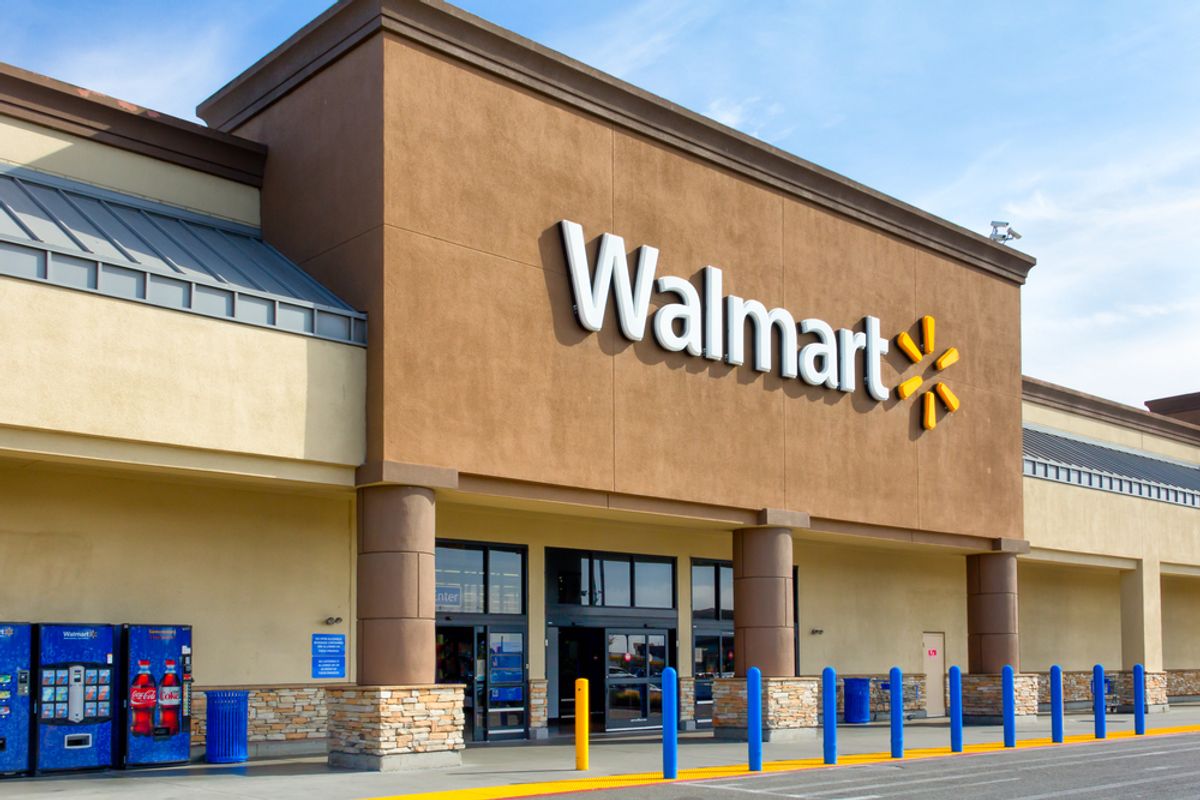It’s difficult to read Susan Berfield’s outstanding story on how Wal-Mart monitors its workforce without thinking of Aldous Huxley’s dystopian novel, "Brave New World."
In a 1949 letter to George Orwell, Huxley compares "Brave New World" to Orwell’s recently issued 1984, writing:
…whether in actual fact the policy of the boot-on-the-face can go on indefinitely seems doubtful. My own belief is that the ruling oligarchy will find less arduous and wasteful ways of governing and of satisfying its lust for power, and these ways will resemble those which I described in Brave New World.
Huxley, who was for a time Orwell’s teacher, couldn’t help but remind his former pupil that the dreadfully efficient oppression exacted by the World State in "Brave New World" is more realistic than Orwell’s vision of brute coercion in "1984."
Huxley believed infant conditioning and hypnosis—rather than guns, bombs and clubs—would become the state’s preferred instruments of control. More important, however, "Brave New World" recognizes the crucial role of consumer culture in engineering “soft” coercion, for which the subjugated choose their own subjugation by mistaking the unending consumption of products and entertainment for freedom and fulfillment. Conditioning phrases like “ending is better than mending” and “the more stitches, the less riches” encourage the World State’s subjects to perpetually buy new things instead of questioning social conventions and limitations.
The comparison between Wal-Mart and Huxley’s World State is striking. Yes, Wal-Mart is a prominent driver of a frequently alienating and facile consumer culture; but we already know this. The more interesting aspect of the comparison is how Walmart reacts to insubordination. As Berfield tells us, “Walmart has a system for almost everything; when there’s an emergency or a big event, it creates a Delta Team.” Wal-Mart’s “Delta teams” spring into action when the company perceives a threat, tracking employees’ social media accounts, tracking protesters’ physical movements, eavesdropping on employee conversations at work, and reporting even jokingly critical comments up the chain of command. Further, as Berfield reports, Wal-Mart outsources aspects of its employee surveillance, hiring defense contractor Lockheed Martin’s information technology and cybersecurity division to keep track of rogue organized labor activity within the company.
It’s tempting to view Wal-Mart’s employee monitoring practices through the lens of Orwell and "1984," since Wal-Mart’s intolerant attitude toward free association and dissident speech among the ranks of its labor force sounds a lot like what Orwell calls “thoughtcrime,” the criminalization of any thoughts against the ruling order and their interests. But Wal-Mart has gotten smart in a Huxleyan way. They anticipate employee dissent with systematic plans for how to respond, minimize public relations damage, and discourage further protests. Rather than cracking down on all dissenters in sweeping or brutal fashion, Walmart collects enough information to know how to target its disciplinary efforts for, as one says, the optimal result. That result is, as Berfield notes, a decrease in dissenting activity:
A two-page Walmart executive summary prepared after…Black Friday noted that picketing occurred at 203 stores, compared with 214 the previous year; flash mobs were down from 76 to 10; instances of people distributing literature declined from 131 to 96. The document highlighted its conclusion that only 20 associates participated in strikes, compared with 118 in 2012.
Among the pivotal moments of "Brave New World" is the attempt of John “the savage” to halt infant conditioning and liberate all within an earshot from the bondage of drug-induced euphoria and consumption-based mind control. “‘Free! Free!’ the Savage shouted,” as John agitates the children while pitching handfuls of drugs out the hospital window. Sadly, when we read this passage, we know that John’s revolt will come to nothing. Within moments of John’s outburst, “Anti-Riot Speech Number Two (Medium Strength)” begins playing on the loudspeaker, pleading “so pathetically, with a note of such infinitely tender reproach,” “My friends, my friends!...what is the meaning of this? Why aren’t you all being happy and good together?”
It’s a deeply and darkly hilarious fantasy to imagine the trademark Wal-Mart smiley face projected on a dead, off-white wall above several racks of paper towel options, intoning “My friends, my friends!” as dissident employees put aside demands for a living wage and health benefits and lock arms in solidarity with that abstract corporate credo, “live better.” But when there really is a thing called “Delta team” that mobilizes at the hint of peaceful protest to protect the bottom line and the public image, it’s no fantasy; we’re witnessing a dark reality.
The fact is that "1984"-style coercion—in this case, armed enforcers hired to beat down and intimidate protesting employees—is bad for the corporate image. Companies like Wal-Mart understand they can’t repeat the Homestead Massacre in 2015, so they need to explore more Huxleyan means of keeping employees under control. This fact of modern public and labor relations highlights an important implication of Huxley’s insight, one "Brave New World" dances around but neglects to make explicit: while we expect states to use brute force, private corporations enforce interests by other means. Huxley’s World State idolizes Henry Ford for his ability to efficiently co-opt human labor for corporate interest, so the World State itself co-opts Fordian tactics to govern its people. The World State, in other words, is just a corporation elevated to the level of a government.
What we learn from this comparison between Wal-Mart’s employee monitoring practices and Huxley’s "Brave New World" is that the discourse of rights vis-à-vis the government or the state is not enough to account for the tremendous power that corporations like Wal-Mart exercise over the lives of millions of employees. Leading journalists and politicians on the left and right have much to say about freedom of speech these days. If they care so much about freedom, at what point will they start questioning policies of overt and elaborate thought policing at powerful corporations like Wal-Mart?

Shares